#michael ho
Text
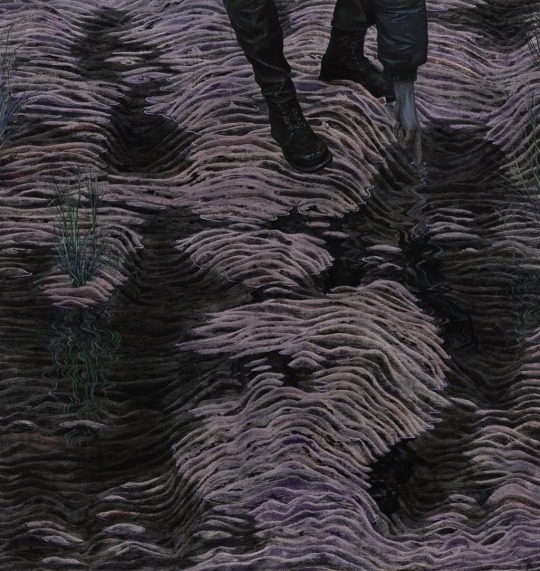
Gail Godwin is one of our finest writers. Godwin's latest book "Getting to Know Death," will be published this month by Bloomsbury U.S..
This excerpt appears in Harper's Magazine.
>>>>>
DARK KNIGHTS OF THE SOUL
I have been close to people who one day found themselves in the desperate place and didn’t make it out.
I remember struggling to write a letter to a young man whose father had just hanged himself. The father had been the builder of our house. He was charming and talented and proud of his son. I wrote these things to the son and then came the point in the letter where I was supposed to write something hopeful for the future. All I could think of to convey was No, you’ll never get over it, but the time will come when you will be glad you can’t get over it because the loved one remains alive in your heart as you continue to engage with the who and the why of him.
Two people in my family didn’t make it out of their desperate place: my father and my brother.
Though I had seen my father only twice when I was a child, I sent him an invitation to my high school graduation. Mother said not to expect him to show up, but he did. He, his new wife, and his brother drove from Smithfield, North Carolina, to Portsmouth, Virginia, for the ceremony. In the early-summer weeks that followed, we wrote letters to each other. He had elegant handwriting and prose to match. He wrote that he would like more than anything to get to know me better. Could I—would it be possible for me to spend a few weeks with them at the beach this summer? I was in my first desperate place at that time and decided to tell him about it—though not all of it. I ended up going to the beach and returning with them to Smithfield and entering Peace College in the fall, paid for by my father.
My father had been doing some personal bookkeeping of his own. At the age of fifty, he had at last achieved a measure of stability. Finally, after thirty years of intemperate living, he had managed to stop drinking, had married a new widow in town with a prosperous brother-in-law, and was manager of sales at the brother-in-law’s car dealership. My father confided to me during the weeks we spent at his brother-in-law’s beach cottage that he regretted not having made more of himself. “You mustn’t let it happen to you,” he said. “Nobody is prepared for how quickly time passes, and you don’t want to be one of those people who wakes up in the late afternoon with nothing to show for it.” But later, in a radiant moment while we were lying on the beach working on our tans, he told me that I had come along at just the right time, and if he continued to win his battle against depression and alcohol, and if automobile sales continued like this, well, the future didn’t look so hopeless after all.
As we lay side by side, congratulating ourselves for finding each other, I had no idea that old disappointments were biding their time, stealthily building like waves, which in less than three years would drown him.
One winter afternoon when I was a junior at Chapel Hill, he phoned his brother at his office. “Just felt like saying hello, old son,” he said. “Son” was what the brothers called each other. After he hung up, he lay down on the floor of his bedroom in Smithfield and shot himself in the head.
Losing ground. Was that the thing that ultimately killed him? In his twenties, he began losing jobs, losing status, but always got back on his feet. A charming, handsome man, he did not need to keep a steady job as long as his mother was alive. And after her death, there would be other admirers waiting in line for whom his looks and charm were enough. By the time he met my mother, he was an alcoholic. After that came the mental disorders, given different psychiatric names as the years went by.
When they were driving back to Smithfield after my high school graduation, he came with a raging toothache. They found a dentist along the road who pulled the tooth. But the pain continued, and when they got home, the dentist told him it had been the wrong tooth. “I should have known,” he would finish this story, laughing. “I should have known when we drove into the parking lot and his shingle read: doctor payne.” He still had the charm but the looks were going.
This is from a June 16, 2018, New York Times op-ed, “What Kept Me from Killing Myself,” by the Iraq War veteran Kevin Powers. “Throughout that summer and into the fall . . . just below the surface of my semiconsciousness, was the constant thought: Maybe I won’t wake up this time.” Powers continues:
I doubt much needs to be said about the kind of despair that would make such an idea a source of comfort, despair that came not from accepting that things were as bad as they were going to get but, worse, that they might go on like that forever. The next step felt both logical and inevitable.
This sounds along the lines of what my twenty-eight-year-old brother might have been thinking in the hours that led up to his death.
In the last week of his life, Tommy was working on a long poem. He left behind two drafts. He titled one “Why Not Just Leave It Alone?” and the other “Why Change the World?” One line is the same in both drafts: “My pride is broken since my lover’s gone.” Both drafts end with the same image of the poet being laid to rest in his wooden home, “With my trooper hat on my chest bone.”
It was October 2, 1983. What happened, what we know happened, as opposed to all that we can never know, was that on the Sunday afternoon after Mother’s birthday, Tommy ironed a shirt at his parents’ house, where he had been living with his three-year-old son. He told Mother he was going over to see J., the woman he loved, a nurse who also had a three-year-old son. They had planned to marry; they had even made out a budget. Then J. suddenly broke it off. Tommy told Mother he was going over to ask J. to reconsider. “I’m going to settle it one way or another before the afternoon is out,” he said, and drove off alone.
COUPLE FOUND SHOT was the headline in the newspaper the next morning.
The day before, on Mother’s birthday, I knew Tommy was unhappy. But Tommy was always unhappy. He “felt things more than most” was the family euphemism for his troubled nature. He most took to heart the family’s fractures as well as the world’s. Drawing you in with his shy, closemouthed smile, he would offer his latest tale of woe. But always, always in his stories, there had been a quality of suspense, of entertainment. He starred in them as the knight-errant, complete with pratfalls and setbacks, but a knight-errant who picked himself up, dusted himself off, and set out on his next mission. Tommy was a modern Samaritan who carried a first-aid kit and a blue emergency beacon in his car in case he came across an accident.
We were in the kitchen and he told me the story of J. suddenly breaking up with him. But this time something was different. I was not, as usual, deriving the usual listener’s satisfaction from his story. Many years later, when remembering that kitchen scene, I realized what had spooked me about it: Not only was there not a trace of the shy, closemouthed smile, there was no knight-errant starring in my brother’s story. The tone was new: one of bafflement and resignation. There was no sense of any future missions. There was no tug of suspense. It was like a story that had already ended.
Tommy would be sixty-three now. He was born the same summer that my father drove from Smithfield to Glen Burnie, Maryland, and rescued me from my desperate place. If on that October afternoon twenty-eight years later there had not been a pistol handy in the glove compartment of J.’s car, would Tommy have remarried somebody else and raised his son and reconciled himself to a fallen world, as long as he had a firstaid kit and a job that gave him the satisfaction that he was rescuing people from injustice?
But now I do hear his voice, the old Tommy voice, just as it was in life, chiding me as he defends the position of his beloved National Rifle Association with its singsong refrain: “Gail, guns don’t kill people. People do.” I continue to engage with the who and why of my father and my brother.
During my life, I have found myself in the desperate place four times. But that first time, at age eighteen, was by far the worst.
Summer 1955 in Glen Burnie, Maryland. Everybody seemed to have a future but me. I had received a letter from Mother Winters, my mentor from ninth grade. She congratulated me on being salutatorian, asked about my plans for college, and brought me news of some of my classmates. “Pat has won the four-year Angier Duke scholarship to Duke, Carolyn will be going to Radcliffe, Stuart and Lee to St. Mary’s in Raleigh . . . ” Here I stopped reading and felt . . . what? A dry mouth, a pang in the chest, a sense of going down, of losing myself. All I knew to do was mark my position.
My position. At the time, I couldn’t hold all of it in my mind. If I had tried, I might have despaired, or lashed out and hurt myself or somebody else. I had so little experience to draw from and there was no escape.
Since my early teens, I had been building my life on false premises. I was creating a persona that was more extroverted than I really was. She pretended to more confidence and security than I felt. I became a pro at embellishing and editing my history. When I entered a new school, I “went out” for things I was good at that would bring me attention. The school paper, the drama club, painting posters and scenery, entering competitions—and, of course, getting high grades. I dated lots of boys, made it a point to be cagey and hard to get until each got fed up and moved on, usually just as I had begun to appreciate him.
That was the outside of things. At home, other dramas were playing out. We were not free people. Our embattled breadwinner, who was angry much of the time, sometimes knocked one of us to the floor for challenging him. There was no money for us except what he doled out and no going anywhere he didn’t drive us. As I entered my teens, the bread winner, who was only twelve years older than me, often spoke of how he “loved” me. His voice trembled. At night I would wake to find him kneeling in the dark beside my bed, his hand taking liberties.
My mother had shed her former confident self. As a child, I knew a mother who arrived home on the 10:00 pm bus after her wartime job on the newspaper, a woman who taught college and on weekends typed up love stories that earned one hundred dollars apiece. This powerless woman seemed more like someone I was visiting in prison. Only I was in prison with her. She suffered because there was no money to send me to college. She made phone calls to a private college in Baltimore to see if I could go as a day student. The registrar said a partial scholarship might be arranged, given my academic record, but where was the rest of the money to come from? There was no “rest of the money,” my stepfather reminded us, as though we were dim-witted. He suggested I take a year off and find a job, “maybe in sales work,” and save up for college next year. He added magnanimously that I could continue to live under his roof for the time being without paying rent.
That’s the way the ground lay that June 1955 morning in Glen Burnie, when the girl sat cross-legged on her bed, the letter from her old teacher clutched in her fist. “Pat to Duke, Carolyn to Radcliffe, Stuart and Lee to St. Mary’s.”
This is my life, but I may not get to do what I want in it.
I can’t see a way out of this.
Things will not necessarily get better.
In my novel Unfinished Desires, about life at a girls’ school, two old nuns are being driven back to their retirement home from a doctor’s visit, and one says to the other, “There was a sentence this morning in that Prayer for Holy Women: ‘In our weakness Your power reaches perfection.’ What do you think it means, Sister Paula?” Sister Paula thinks for a minute and then replies, “I think it means you have to admit you can’t save yourself before you’re fully available to God.”
That morning in Glen Burnie, God was undergoing some very slippery changes in my psyche. He had ceased being the attentive Heavenly Father who was always aware of me. All I could be certain of that long-ago summer morning was that I could not save myself.
But something else did, something already embedded in the tissue of my particular circumstances: the earthly father who had been the absent father. In a mood of defiant resignation, I decided to send him an invitation to my graduation. Of course he wouldn’t come.
But he did come. And when we were lying beside each other on the beach, he said, “When I opened your invitation, after I got over being pleasantly surprised, I thought to myself, Well, this is one thing I did that came to fruition. And then, after we began to write letters to each other, it struck me that I might be the rescuer you needed.”
Art Work: "When Day Touches Night," a painting by Michael Ho, whose work was on view last month with Gallery Vacancy at the art fair Independent New York.
(Follies of God)
6 notes
·
View notes
Text
youtube
Big Wave ビッグ・ウェイブ (1984)
Dir. by Walter McConnelly
Music by Tatsuro Yamashita
Featuring: Mark Richards, Michael Ho, Tommy Carroll, Sam George, Rabbit Bartholomew, Peter Townend, Cheyne Horan, Willie Morris, Martin Potter, and more
#Big Wave ビッグ・ウェイブ#Big Wave 1984#Walter McConnelly#tatsuro yamashita#Mark Richards#Tommy Carroll#Sam George#Rabbit Bartholomew#Peter Townend#Cheyne Horan#Willie Morris#martin potter#michael ho#big wave#surfing#hawaii#north shore#oahu#maui#1984#Youtube
2 notes
·
View notes
Text

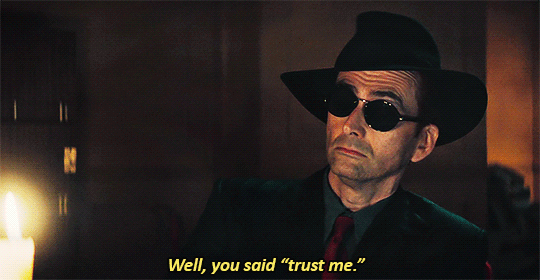

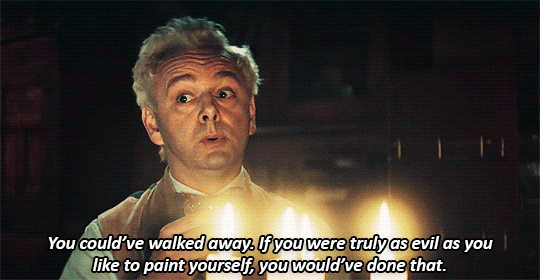
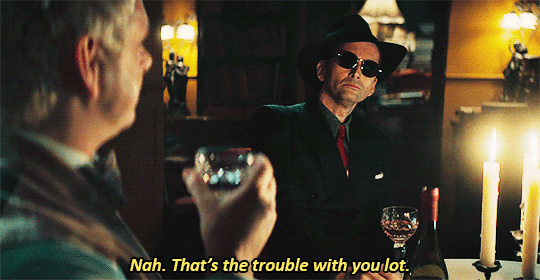
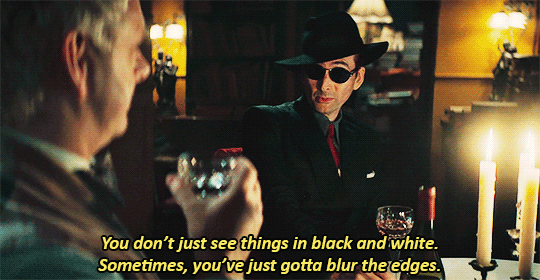
~ Maybe there is something to be said for shades of grey.
~ Well, shades of dark grey.
~ Shades of very light grey, I'd rather fancy.
#theres something about this part that i want to parallel it to the ending of this season#but i still need to sort my thoughts on that#anyway!!! the trust and love azira had at this moment and scene!! its so great and big and beautiful ahh#on the other side - crowley holding that gun with trembling hands but doing it just bc azira asked him and bc he knows he trusts him and ho#much crowley loves him ahhhaahsaksjd im fine (im not fine)#goedit#goodomensedit#good omens#good omens 2#good omens spoilers#ineffable husbands#aziraphale#crowley#aziraphale x crowley#aziracrow#david tennant#michael sheen#mine#gif:good omens#good omens s2 spoilers
606 notes
·
View notes
Text

michael rikio ming hee ho, "should i take the risk," 2024, acrylic on cotton canvas
57 notes
·
View notes
Text
"The Punisher of The Damned and The Protector of All Innocent."
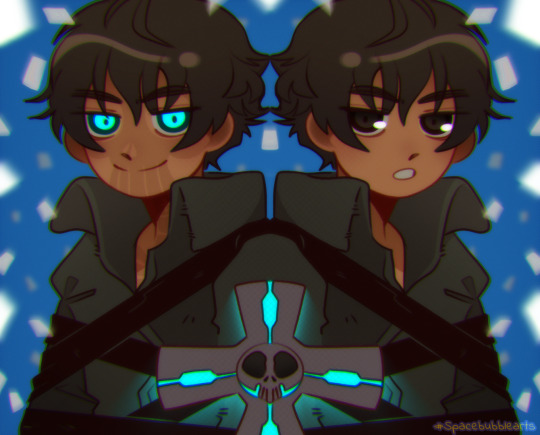
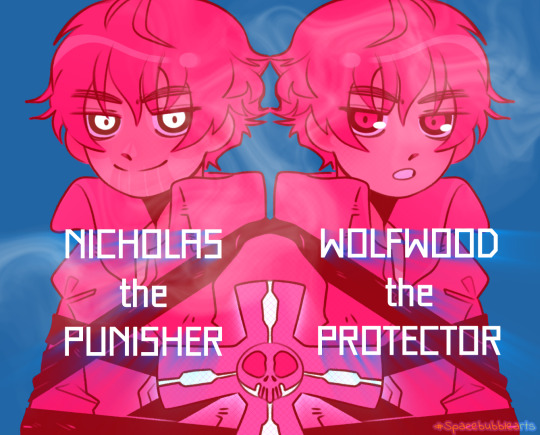
Hehe. I enjoy the duality of one Nicholas D(oomed by the narrative). Wolfwood! He just fits Dia de los Muertos so well! To show this, I drew his lost childhood once yearned and the weapon in his mirror he wish died altogether. Bound like his arsenal of choice and named from parts of himself marked by two angels. Plus, a BONUS: As you can see, Teru Vash and I only have "WooWoo" in the brain. 🤞🥲✝️ Love and R.I.PEACE!!! 💀
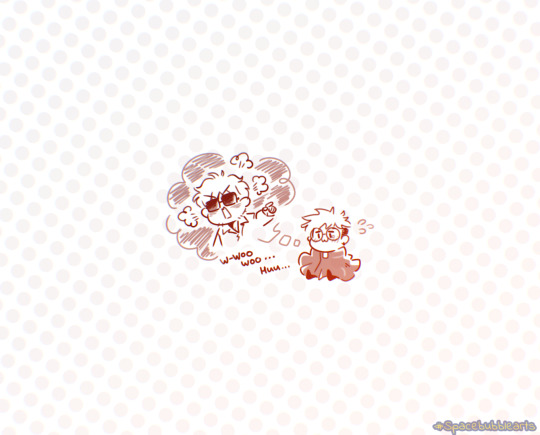
-Bubbly💙
#spacebubblearts#my art#fanart#nicholas d. wolfwood#vash the stampede#vashwood#trigun#trigun stampede#netflix#dia de los muertos#the punisher#gung ho guns#eye of michael#young wolfwood#teru vash#the angelic and religious symbolisms tied to these characters I-#doodle#posted this on insta too but the graphics weren't as nice#gunsmoke#no man's land#november 2#chibi#i can definitely see wolfwood feel stuck as a child in a soldier's body#having nightmares of everything he didn't want to be but he believe he became#and hating it#thus I tied him to his so-called sins like how he ties The Punisher#this man is dead inside and it shows#ngl I really like how I drew this#iffy about the colors but maybe I'll like it later on#Soft about how everything he does is for some kids who'll never know the extent of his pain and the hell he went through for them
237 notes
·
View notes
Text
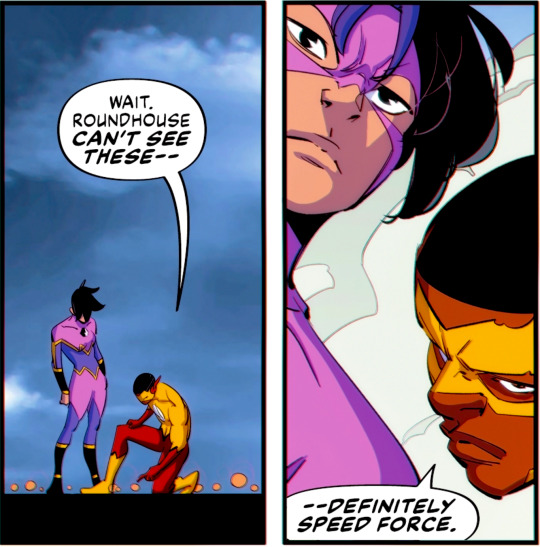



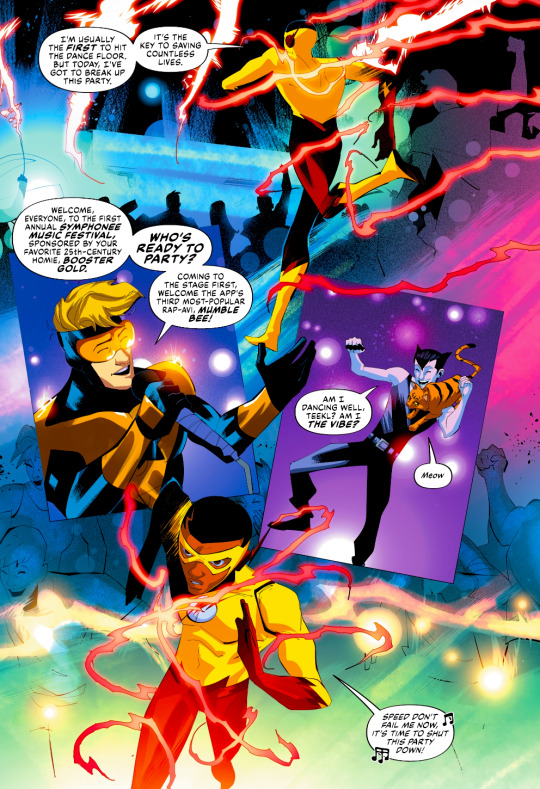
party crashers ⚡️
Speed Force #5
art by Daniele Di Nicuolo, George Kambadais, and Andrew Dalhouse
#wallace west#avery ho#dc comics#tuesday spoilers#flashfam#kid flash#dc#flash#speed force#kon el#superboy#rondhouse#billy wu#comics#teen titans#michael holt#mister terrific#booster gold#klarion the witch boy#klarion bleak
92 notes
·
View notes
Text


MOMO ALLA CONQUISTA DEL TEMPO
2001 | Enzo D'Alò
#momo alla conquista del tempo#momo#Enzo D'Alò#michael ende#animationedit#cartoonedit#nondisneyedit#filmedit#movieedit#italiansedit#edits*#ho usato il video di aria 😔
14 notes
·
View notes
Text
Which Michael Sheen Avi Are You, or: Just How Cursed Do You Want to Feel Today?
Thanks to @prinxlegolass I took said quiz and, well... have to say I hate this, despite the fact it is pretty accurate:

You can take the quiz at:
#it's true i am cursed#...with wonderful family and friends#gotcha#and also with an inability to people but hey ho#good omens#good omens fandom#michael sheen#david tennant#michael sheen fandom#david tennant fandom#michael fucking sheen#welsh seduction machine
11 notes
·
View notes
Text
Five: so what made you come to the conclusion you were trans?
Miko: i heard i/me/myself from will wood and that kinda kickstarted me transing my gender
Mitch: i gues there are weirder ways coming out of the closet
Miko: did will wood also transed your gender?
Mitch: pff of course not
Nix: it was "ill make a man out of you" from mulan
Mitch: *blushing* NIX!!
#glitch techs#miko kubota#hector nieves#mitch williams#adam michael nix#miko and mitch are trans and gay#ho and nix and mitch are dating if anyone is curius#incorrect quotes#glitch techs incorrect quotes
64 notes
·
View notes
Text

Beautiful key art of six of our main mates from Season Two, courtesy of Ben King's website!
On Sunday afternoon, just before Greed And Fear made its telly debut, my mum and I finished Season Two on ABC iView. I still mourn the fact that we lost the six week roll out and I felt that pressure to rush through the season purely to avoid spoilers, hence the reason I have been absent from Tumblr this week, but oh my goodness.
I am abiding to my no future episode spoilers conduct here, to be fair to everyone. But what I wanted to say was WOW. This season has been nothing that I could have predicted, aside from some of the real life historical references influencing the direction of the show. The ability of the writers, the actors, to challenge our perceptions and add flaws to characters that we love, and give us more empathy and understanding for characters that we have historically disliked in Season One, it's beyond incredible. I definitely feel as though my brain was rewired through this season.
The bravery to take the show in frightening, more harrowing directions, to not resort to easy choices and options for all the characters, even the characters who got "happy ever afters" still have that layer of nuance of imperfections that still exist within that dimension that they are now occupying. I have been challenged in ways that I could never have anticipated with some of the storytelling decisions this season, but we will all be richer for it. Because stories are always richer when risks and unexpected twists are taken, and this show has catapulted into a brand new space for me.
I can't begin to tell you how proud I am to be a fan of this extraordinary show, to help further tell these stories, and more importantly, even more proud of the incredible team behind the show. They have DONE. THEIR. JOB. How brilliant to see an Australian story so carefully constructed and so well received by viewers everywhere.
AND! In another unexpected twist, Season Three was confirmed today! The welcomed chaos of Season Two will truly get the chance to be further explored, and looks like you're stuck with me and my fangirling shenanigans for another couple of years! 😂 Well done, Team Newsreader, well bloody done! 💖📺🌟🇦🇺📰🎥
#helen norville#anna torv#dale jennings#sam reid#noelene kim#michelle lim davidson#rob rickards#stephen peacocke#lindsay cunningham#william mcinnes#dennis tibb#chum ehelepola#michael lucas#kim ho#niki aken#adrian russell wills#emma freeman#the newsreader#so so so many thoughts but we have plenty of time to explore them!#and season three! what brilliant news to receive today! was not expecting that so so soon! 😍
44 notes
·
View notes
Text
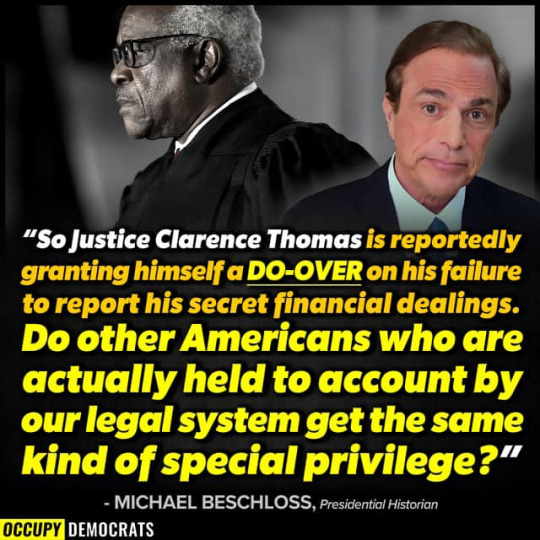
134 notes
·
View notes
Text
Dark Ships from 2023
It's not the greatest year for villain/heroine or problematic ships I must say. It was really hard to find new juicy stuff but here is what I came up with by order of preference:
Homelander x Starlight (The Boys)
Homelander x Maeve (The Boys) - in a smaller scale
Agatha x Dracula (BBC Dracula)
Eren x Mikasa (Attack on Titan)
Debbie x Nolan (Invincible)
Ikaris x Sersi (Eternals)
Motoko x Puppet Master (Ghost in the Shell (1995))
Charlie x Charles (Shadow of Doubt)
Alice x Luther (Luther)
Gabriel x Michael (Star Trek Discovery)
Guts x Griffith (Berserk)
Happy holidays, everyone!
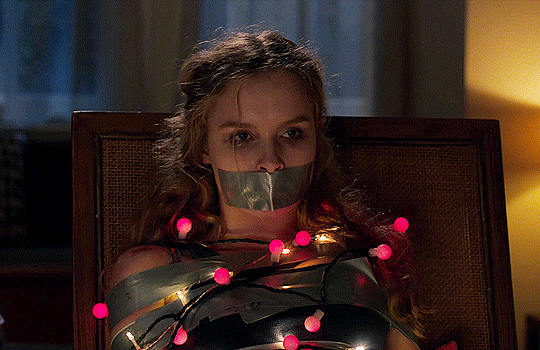
#useful lists#villain x heroine#the boys#starlander#homelight#homelander x maeve#agatha x dracula#bbc dracula#eren x mikasa#attack on titan#debbie x nolan#invincible#ikaris x sersi#eternals#villainess x hero#alice x luther#luther#gabriel x michael#star trek discovery#guts x griffith#berserk#villain x hero#ho yay#shadow of doubt#charles x charlie
39 notes
·
View notes
Text

The thirst is real.
#daniel jackson#michael shanks#daniel jackson's arms#daniel jackson muscles#thirsty ho#stargate#stargate sg1#chimera#do you even lift bruh#oh yeah#oh and tealc was there
71 notes
·
View notes
Text
Video Killed the Radio Star
If you don't already feel sufficiently alienated from the culture of your generation, consider getting into old time radio. It's pretty easy to do: Radio was mainstream media from the 1930s well into the 1950s, and it hung on for quite a while after it started losing ground to television. There's a huge amount of programming in various genres, and a surprising amount of it survives; there was a cottage industry in OTR cassettes and CDs for many years, a lot of shows can be found in MP3 format without much effort, and some of it pops up regularly on streaming platforms.
The easiest way to get into it is if you're already got a fondness for some older Hollywood star: If they were a movie star between 1930 and 1960, there's a good chance they guest-starred in various radio shows, and they might even have had their own show for a while. For instance, do you like Humphrey Bogart and Lauren Bacall? Around 1950, they had their own syndicated radio adventure series, BOLD VENTURE, which was essentially an extended riff on their characters in the 1944 film version of TO HAVE AND HAVE NOT. Orson Welles, of course, was a big radio star, playing the lead on THE SHADOW in 1937–38 and then bringing his Mercury Theatre company to a number of different one-hour and half-hour radio series. Vincent Price starred for several seasons as Leslie Charteris's Simon Templar on THE SAINT. And almost everyone who was anyone showed up now and again on SUSPENSE or LUX RADIO THEATRE (which produced all-star one-hour adaptations of popular movies). If you're a Superman or Sherlock Holmes fan, the radio versions of those characters are a must — Holmes was a perennial presence on English-language radio for decades.
If you want something more modern, the British kept producing generally high-quality radio dramas in surprising volume until relatively recently, including a range of both adaptations and originals. Unlike American radio, the survival rate for older British programs from the '40s and '50s is poor, but the BBC has continued periodically airing its better material from the '70s through the '00s, a lot of which has been offered on cassette and CD. For instance, there were excellent BBC radio series dramatizing the Wodehouse Jeeves and Wooster stories (with Michael Hordern and Richard Briers); Dorothy L. Sayers' Lord Peter Wimsey series (with Ian Carmichael); and Agatha Christie's Hercule Poirot mysteries (with John Moffat), along with standalone plays on programs like SATURDAY-NIGHT THEATRE. The big limitation with British radio dramas is that the number of British radio actors who can do convincing American accents is not high (and is definitely lower than the number who mistakenly think they can), and the availability of American actors who know how to act for radio is clearly even more limited, which can become a grating problem when dramatizing American material.
One of the reasons that listening to older (and/or British) radio shows will contribute to your cultural alienation is that it will make a lot of modern dramatic podcast series and audio dramatizations excruciating, because it will reveal to you how bad a lot of modern audio dramatists and performers are at this once commonplace art. (If you are or are contemplating doing a dramatic podcast or audio drama, please, for the love of dog, make a close study of radio shows created before you were born, and diversify enough to recognize the mediocrity of hacks like Dirk Maggs, who's been stinking up audio drama on two continents for four decades now.)
#old time radio#i actually hate the term old time radio#but it's a useful descriptor and it's not up to me#humphrey bogart#lauren bacall#orson welles#bold venture#vincent price#leslie charteris#sherlock holmes#superman#what ho jeeves#michael hordern#richard briers#dorothy l sayers#lord peter wimsey#ian carmichael#hercule poirot#john moffat#saturday night theatre#dirk maggs#radio#bbc radio
24 notes
·
View notes
Text

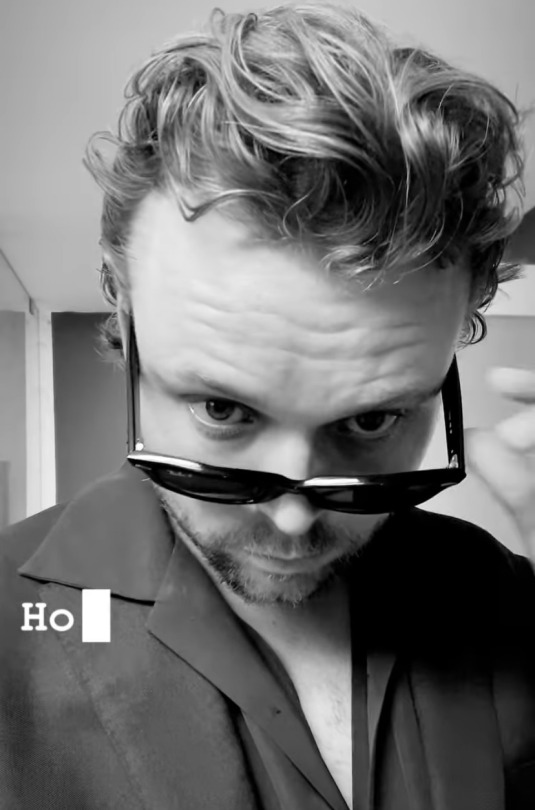

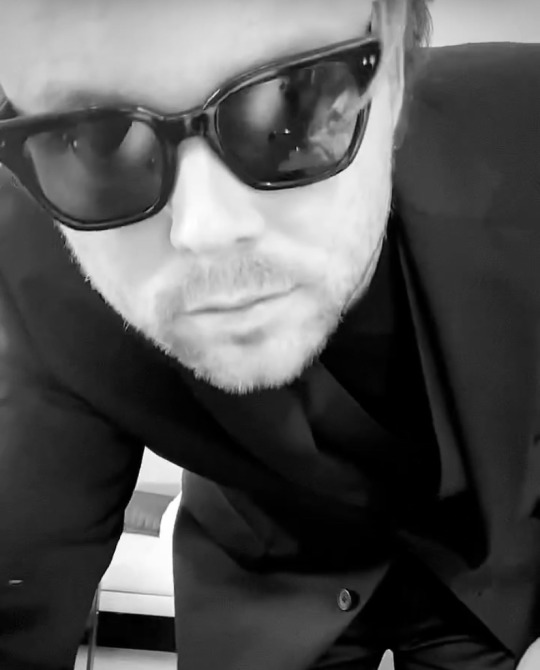


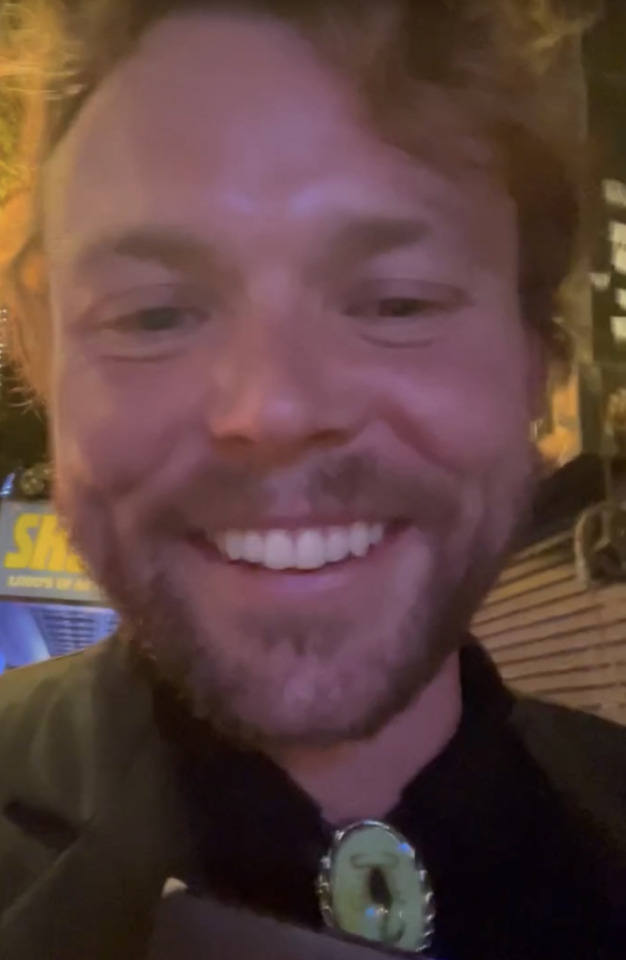


happy 29th to the mullet havin’, bolo-tie wearin’, groove makin’, muscle growin’, barbecue grillin’, weed smokin’, rootin’-est, tootin’-est australian rock’n’roll cowboy 🤠⭐️🤓🧸
#he literally only gets sexier with age#like a fine wine#Jesus fucking Christ#SOMEONE better be planning on saving a lot of horses tonight#ashton irwin#afi#5sos#lashton#luke hemmings#lrh#calum hood#cth#michael clifford#mgc#also please find the “ho” one funny. I find it hilarious
66 notes
·
View notes
Text
Very funny to me that none of the Gung Ho Guns ever bothered to check Chapel's identity. This dude with a big cross and endless cunt turns up and they all just assume it's him. Like yeah this is vaguely who they expected and they don't share contact info with the Eye of Michael so they'll just go along with it. This dude is getting suspiciously close to Vash while they're all trying to kill him, and instead of double checking who he is they're all just like wow that Chapel sure is a traitorous bitch. Oh well, nothing more to look into there
#do they not have supervillain IDs#as far as i can tell in the manga woowoo just shows up when theyre having their first gung ho guns meet up and everyone just assumes#this rando is chapel#nicholas d. wolfwood#trigun#trimax#gung ho guns#tristamp#eye of michael
25 notes
·
View notes